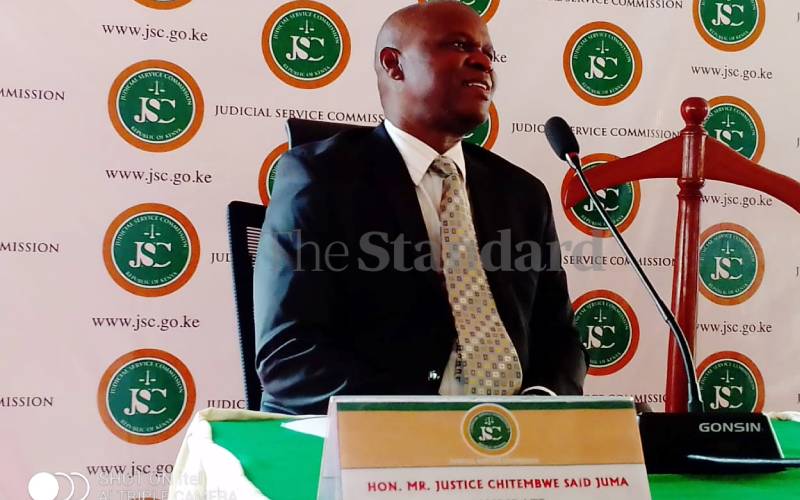×
The Standard e-Paper
Kenya’s Boldest Voice

Justice Said Chitembwe at the Supreme Court in Nairobi on April 3, 2021. [Collins Kweyu, Standard]
The Judiciary cannot eliminate corruption or the perception of it, these were the sentiments of Justice Juma Said Chitembwe to the Judicial Service Commission (JSC) as he was being interviewed for the position of a judge at the Supreme Court on Monday.